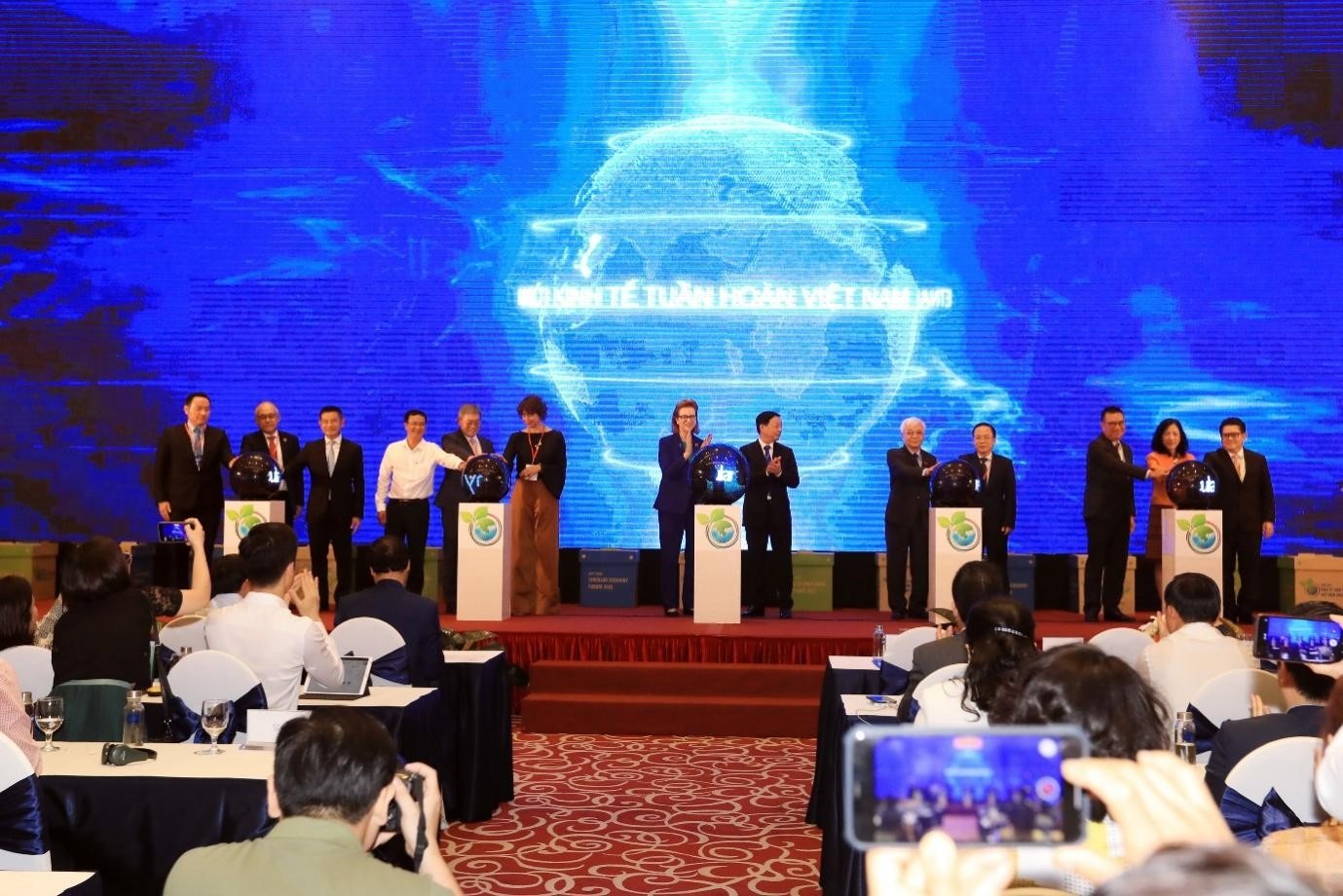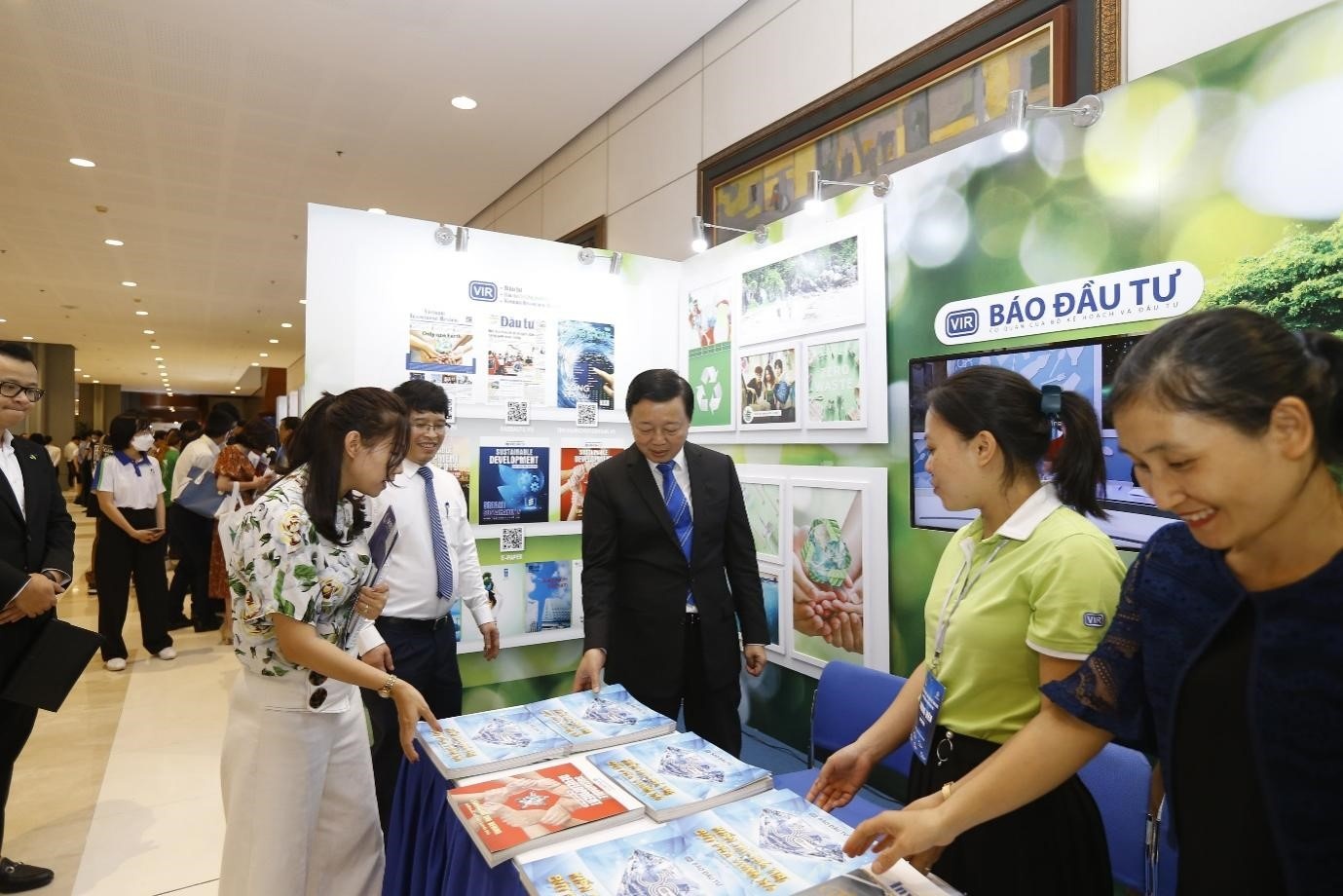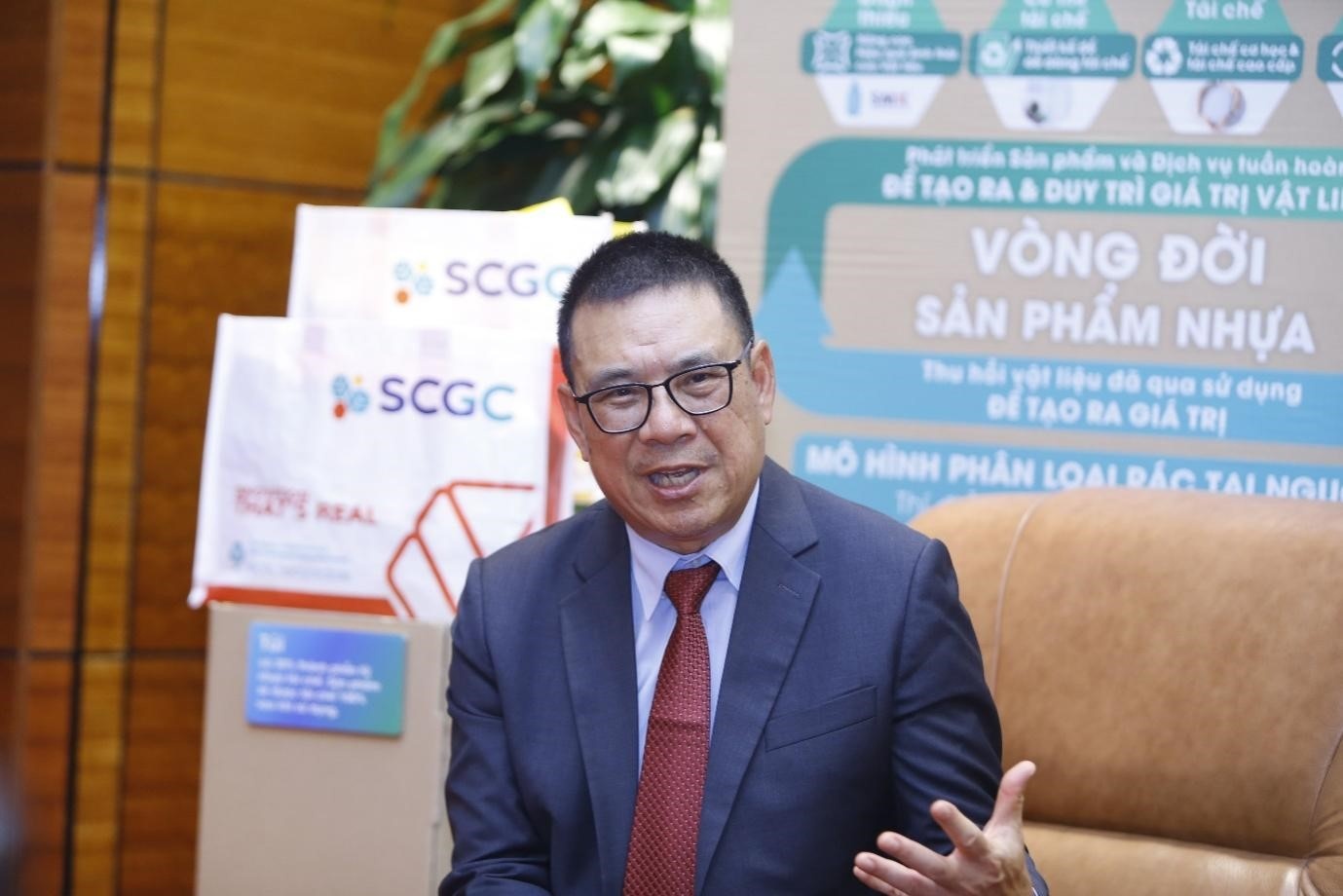Vietnam primed for circular and sustainable advancement
 |
| Public and private sectors work together to establish a circular business economy in Vietnam, aiming towards the country's 2050 objective of net zero emissions. Photo: Duc Thanh |
The conference saw the participation of representatives from the MoNRE, the United Nations Development Programme (UNDP), the Global Plastic Action Partnership (GPAP), Thailand's SCG, BeerCo Limited, the Vietnam Chamber of Commerce and Industry (VCCI), and other international organisations and businesses, as well as the press.
During the plenary session, the panellists examined the feasibility of building CE in Vietnam to achieve the net zero emission objective by 2050. They also discussed factors to be considered when implementing a circular approach in the country, taking into account lessons learnt from foreign partners and proposals for the transition to circularity.
Minister of Natural Resources and Environment Tran Hong Ha emphasised the importance of revamping the current linear economy in his opening remarks, “Together with green economy and low-carbon emission economy, CE is the solution for us to remain firmly on the path to sustainable development. A CE requires fundamental changes in principles and development philosophies.”
 |
| Tran Hong Ha, Minister of Natural Resources and Environment, visited the Vietnam Investment Review's booth at the circular economy exhibition. Photo: Duc Thanh |
Minister Ha pointed out that today's most pressing concern is the development of more efficient economic models, the use of resources, and the prevention of climate change and environmental deterioration. The participation of all relevant stakeholders would be essential for the successful implementation of CE, Ha asserted.
Paving the way for circularity
During the panel discussion on accelerating an inclusive and low-carbon circular economy, Caitlin Wiesen, UNDP resident representative in Vietnam said, “The triple planetary crisis we are facing today including climate emergency, environmental pollution, and biodiversity loss share the same root causes: our reliance on fossil fuels, our persistent and short-term focus on investment, and our lack of imagination. Medium and long-term strategies should match with investment strategies with the same time horizon.”
She outlined four key enablers to consider when designing the pathway that would assist Vietnam in transitioning to net zero emissions, which are framing a new mission, developing guidance and tailored solutions for advancing CE in different provinces, promoting sustainable and low-carbon production and consumption, and fostering investment in research and development and the use of green hydrogen.
“CE is not an end itself but a means to achieving a low-carbon transition and delivering on the agenda 2030,” Wiesen said.
Regarding the potential to move towards circular economy models in Vietnam, Kristin Hughes, GPAP director and member of the World Economic Forum’s executive board said, “Over the past three decades, Vietnam has enjoyed rapid economic growth and has been the focus of many multinational and government investment portfolios. In recent years, that growth has been coupled with a significant increase in consumption and in pollution consequently.”
She stated that Vietnam produced 3.7 million tonnes of post-consumer plastic waste annually, a figure that increases by 6.2 per cent per year.
Roongrote Rangsiyopash, president and CEO of Thai industrial conglomerate SCG highlighted, “CE has become a trend in global investment to rebuild the world economy in the new normal, paving the way to a lower carbon society and sustainable prosperity.”
 |
| Roongrote Rangsiyopash, president and CEO of SCG discussed the shift in the circular investment trends. Photo: Duc Thanh |
Buoying cross-sector collaboration
The panellists agreed that to overcome the existing challenges and accelerate the transition to CE in Vietnam, it is crucial to strengthen cooperation between the government and businesses.
Bui Trung Nghia, VCCI vice chairman put forward proposals on enhancing government-business cooperation for the major transition in the medium term.
“It is necessary to develop incentives in terms of finance, infrastructure, human resources, and information, as well as criteria for evaluating the application of CE principles by businesses and promoting international cooperation through environmental treaties and commitments,” Nghia said.
Moreover, Nghia emphasised that it would be necessary to “collaborate with international organisations, firms, and developed economies to enhance technology transfer and knowledge sharing, fostering circularity in specific areas to serve as a basis for expansion, support the approach to public-private partnership investment, and strengthen exchanges and dialogue with businesses in the development of mechanisms and policies related to CE,” adding that enterprises are the primary actors and beneficiaries of the transition to CE.
Michael Chye, CEO of BeerCo Limited and chief Beer Product Group of Thai Beverage PLC said, “Vietnam and Thailand have the potential to become leaders in the CE by leveraging the collective efforts of both countries.”
Chye suggested the formation of a CE platform with support and guidance from the government, in which businesses can collaborate and convert the ideas into practice.
The construction of CE models should begin with a conceptual shift in order to provide actionable outcomes, according to Chye.
What the stars mean:
★ Poor ★ ★ Promising ★★★ Good ★★★★ Very good ★★★★★ Exceptional
Related Contents
Latest News
More News
- VNPAY and NAPAS deepen cooperation on digital payments (February 11, 2026 | 18:21)
- Vietnam financial markets on the rise amid tailwinds (February 11, 2026 | 11:41)
- New tax incentives to benefit startups and SMEs (February 09, 2026 | 17:27)
- VIFC launches aviation finance hub to tap regional market growth (February 06, 2026 | 13:27)
- Vietnam records solid FDI performance in January (February 05, 2026 | 17:11)
- Manufacturing growth remains solid in early 2026 (February 02, 2026 | 15:28)
- EU and Vietnam elevate relations to a comprehensive strategic partnership (January 29, 2026 | 15:22)
- Vietnam to lead trade growth in ASEAN (January 29, 2026 | 15:08)
- Japanese business outlook in Vietnam turns more optimistic (January 28, 2026 | 09:54)
- Foreign leaders extend congratulations to Party General Secretary To Lam (January 25, 2026 | 10:01)

 Tag:
Tag:




















 Mobile Version
Mobile Version